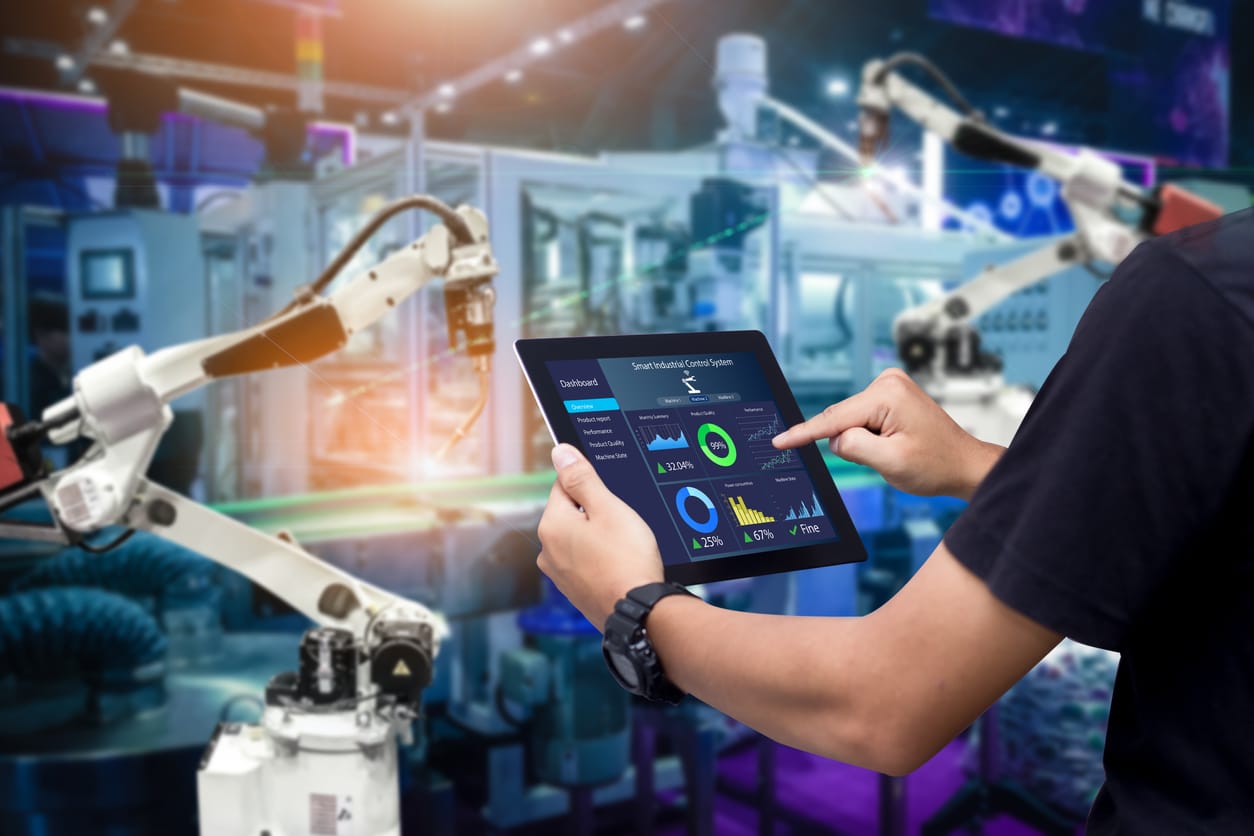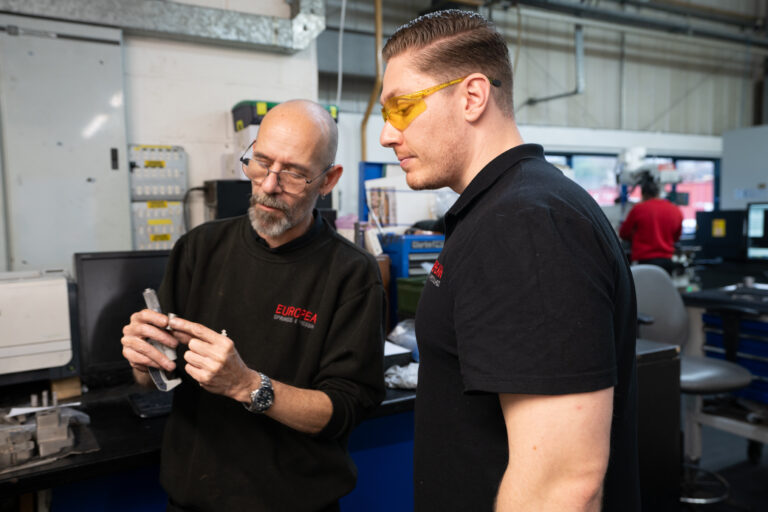With the manufacturing industry experiencing disruption as we have never faced before, it’s not surprising that a lot of things have been put on hold. Industry 4.0 was a much talked about subject before the global pandemic, but it still remains a relevant issue now.
In this article, we’re taking a look at how important Industry 4.0 is and how it will be affected going forward.

Why is Industry 4.0 Important?
Industry 4.0, or the fourth industrial revolution it’s often called, is the future of manufacturing. With the advent of the Internet of Things, virtual reality, blockchain, drones, Big Data, robotics, augmented reality, and so much more, it’s clear that digital technology plays a key role in manufacturing.
Discussion about industry 4.0 may have been overshadowed by the COVID-19 crisis, but many important elements are still set to be implemented this year. 5G rollout is one of them. Artificial intelligence remains just as important as well and many manufacturers depend on additive manufacturing.
There are many benefits to Industry 4.0, including how technologies can help companies to react to the market more quickly (and easily), how work-life balance of your employees can improve, how it’s innovation-centred and how it can lead to fast designs and productions.
The industry is undergoing a massive digital transformation, which can help businesses to remain competitive while driving innovation forward.
Industry 4.0 and Cybersecurity
With so much technology already in the works, cybersecurity is a concern, especially considering how devices are increasingly connected and automated. This can leave them vulnerable to attacks. It’s crucial that technologies are safe against these attacks by having protection built into their code, for example.
Blockchain is helping to ease some of these concerns by creating safer systems. Blockchain allows for decentralised digital transactions where information is securely stored in blocks that are then sealed. This premise allows machines to communicate safely.
So, while it’s crucial to continue advancing technologies, it’s also important to remember that the future of 4.0 will have to include sophisticated security.
Artificial Intelligence
AI and robots will remain just as important and, by 2030, AI-enabled next-generation robotics will transform both industries and society. Technology such as this one will be pivotal in all areas of life, from healthcare and aerospace to electronics and the private sector.
Artificial intelligence allows machines and robots to interact with one another and to learn from and adapt to different situations. This will lead to an exponential growth of industry, from driverless systems in the automotive sector to more intelligence aircraft.
5G Rollout
We mentioned how 5G is one of the main technologies to come out recently, but we can’t expect to see a full-on rollout yet. It’s still early days when it comes to this amazing technology but, once it becomes commonplace, it’s set to impact industries everywhere.
5G will likely continue to be implemented in 2020. This technology will improve automation and increase the speed of information transfer. Machines, including those that work independently, will see a boost in performance because of this. 5G, therefore, can lead to a burst of productivity for companies across the nation and the world as well.
Better Human-Machine Communication
Many people fear that automation will lead to job losses, but this isn’t necessarily the case. Of course, there will be exceptions but, overall, automation will lead to both humans and machines working together. Industry 4.0 will lead to an improvement of cooperation and communication between humans and machines, from better sensors in factories to better artificial intelligence systems.

This, of course, will lead to increased productivity for manufacturers, which will contribute to a financial boost to both the company and the economy.
High-Tech Sensors
Machines already have sensors in order to perform their tasks well. For example, a robot needs to know when to stop filling a bottle or when to stop working if there’s a foreign object on the belt. However, the future of Industry 4.0 will see even better sensors. Machines will self-analyse and constantly monitor themselves; they will also analyse algorithms and predict which tasks are needed from the data they studied.
Unplanned maintenance and downtime could affect companies financially, but this can help them to stay open.
European Springs and Technology
As spring manufacturers, we believe it’s important to stay up to date with the latest technological developments, especially as Industry 4.0 is here to stay – and will have a major impact on the future of manufacturing. This digital revolution has also allowed for increased innovation and creativity, something that will continue to lead to improved machines and solutions.
Our premises are also smart, as we invest a great deal in automation led by humans. This, combined with our modern, cutting-edge machinery, allows us to carry on providing our customers with the best springs, wireforms and pressings in the market.
Get in touch with us to learn more about what we can do for you.







